Rural teachers raise their voices against fumigation
por Mariana AquinoFotos: Vicky Cuomo
18 de octubre de 2019
They are rural teachers. They love what they do. However, since the industrialization of the agricultural sector, they have been routinely exposed to high levels of chemical pesticides. The use of glyphosate is threatening their schools, but these teachers don?t give up. They raise their voices and scream out: “Stop fumigating our children!”
Translation: Karen Elizaga
This is a story about Estela and Emilce, two rural teachers from Gualeguaychú, who reject the use of glyphosate. It is also a story about Ana Zabaloy, a fumigated teacher in San Antonio de Areco who lost her life at the same time I was writing these lines and left her legacy of struggle against the use of chemical pesticides in the fields.
Emilce Altuna loves working as rural teacher. “Here is more quiet and children are great. They come from a humble background and they are all willing to learn. Look at this place! It is so peaceful!” Tells us Emilce, standing at the entrance of Rural School N0 66, where her friend and fighting partner against glyphosate, Estela Lemes, works as principal. “In the countryside everything is more relaxed,” continues Emilce with a hint of nostalgia in her voice. She knows it is not like that anymore. In Gualeguaychú, everything has changed. Nobody can live in peace while the fumigated airplanes spray their deadly cargo over the fields sourrounding your school. How to be quiet while your kids are being poisoned?
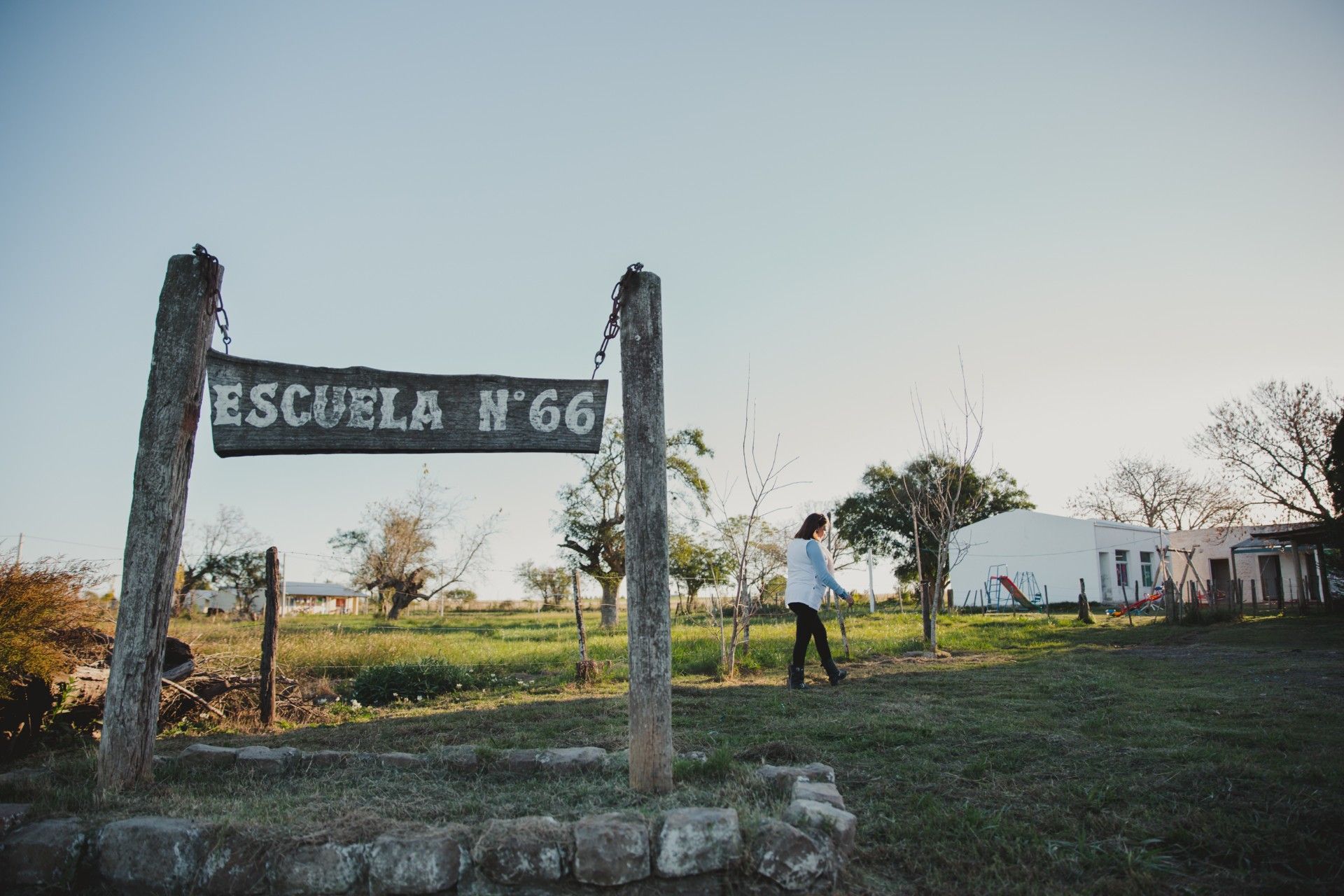
“The mad teachers that complaint”
Agribusiness is unscrupulous. It poisons the enviroment without asking. In Argentina, fields are being sprayed anytime, anywhere. “Even though we didn’t know what it was or how harmful it could be to our health, we were against fumigation from the beggining. They started calling us ‘the mad teachers that complaint’. Look at us now,” muses Estela, who has been put on medication for life. Muscle aches, loss of balance and shortness of breath are her daily companions. She suffers from peripheral neuropathy, a condition caused by the exposure to chemical pesticides. In 2014, Estela was diagnosed with ethyl chlorpyrifos in blood, which is a chemical compound used on crops to kill a number of pests, including insects and worms. Exposure surpassing recommended levels has been linked to neurological effects, and persistent developmental and autoimmune disorders.
In the countryside, farmers are routinely exposed to high levels of pesticides during the preparation and application of the product, people drink contaminated water and live in areas dominated by glyphosate.
Estela remembers that morning in September 2012 quite clearly: “We were cleaning the school after a party when we realized we were being fumigated. We started waving our smocks to let them know that there were kids in the school but they didn’t pay attention and went on spraying. First, I called the mums and told them to pick up the students, and then I called the police.” It wasn’t until the patrol car arrived that they stopped fumigating. The field’s owner told us that the product was too expensive to waste. To him, our lives are worth less than his poison.”
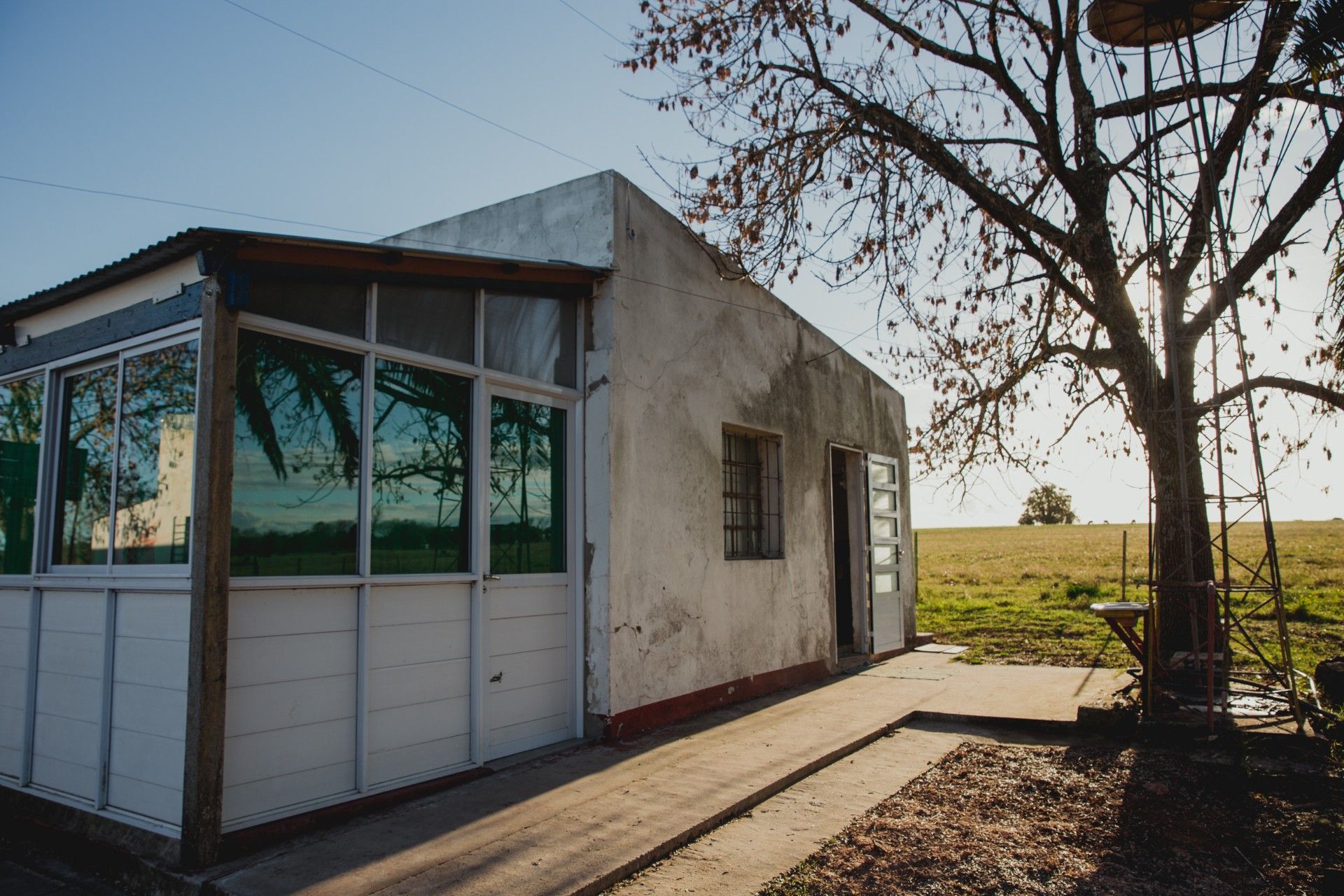
The work that doesn’t dignify you, kills you
Everything that is named, exists. That is what the government thinks and that is why it calls “phytosanitary products” to toxic agrochemicals. In the same way, soybean producers don’t recognize that the chemical pesticides they use in their genetically modified (GM) crops harm people; either because they support agribusiness -and the silent ecocide it generates- or because they feel their pockets with green banknotes. But, what happens with the farm workers? Aren’t they aware of the danger that their daily exposure to pesticides implies? Or maybe the fear of losing their jobs is stronger than the fear of endangering their health? The answer hurts more: “the fear of hunger,” Emilce tells us.
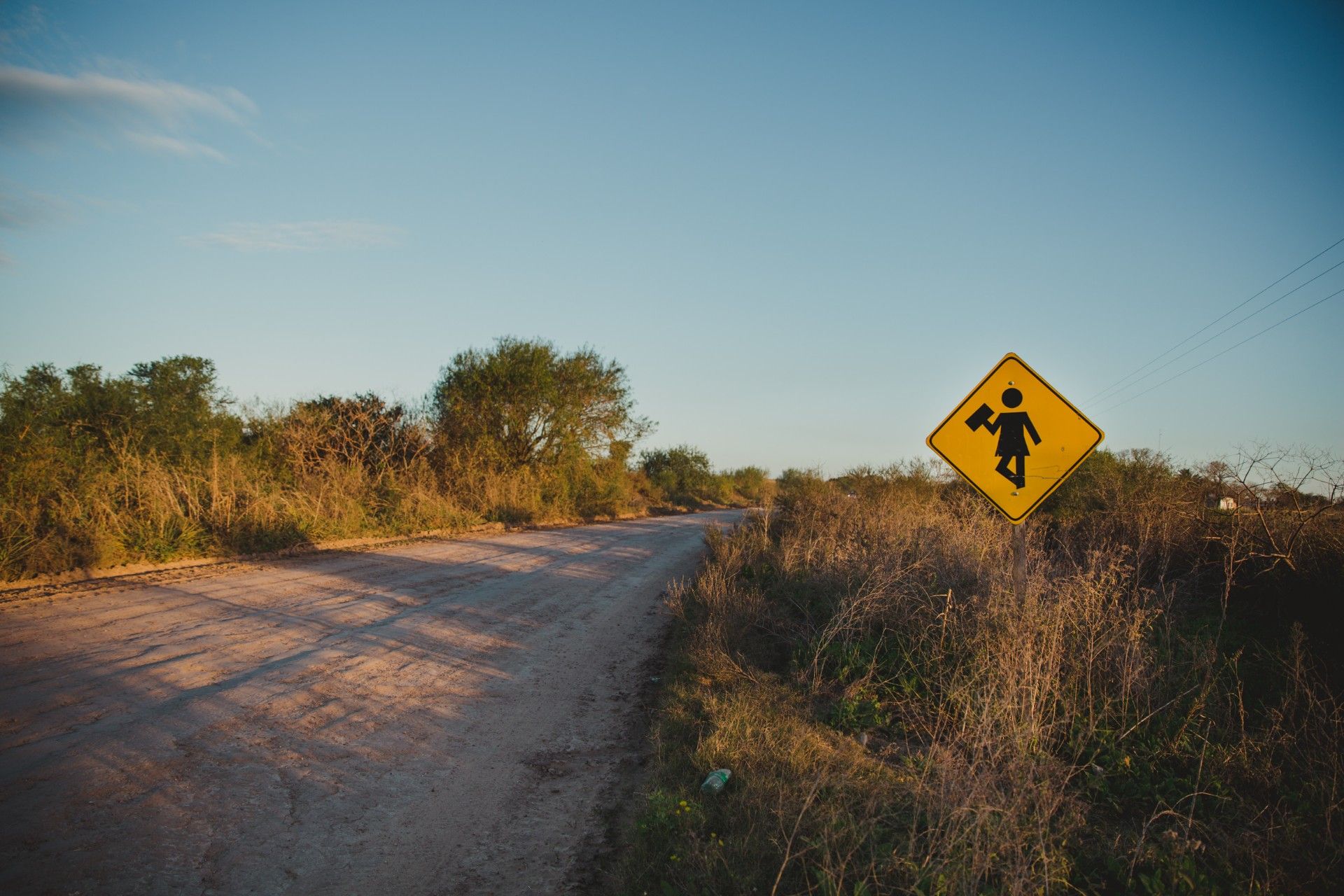
In the countryside, farmers are routinely exposed to high levels of pesticides during the preparation and application of the product, people drink contaminated water and live in areas dominated by glyphosate. Perhaps it is better not to think about the damage that agrotoxins cause to their bodies. People say nothing because they have no choice. They don’t want to loose their jobs and the little they still have got.
In the area where school 42 is located, the water is contaminated. It cannot be consumed but everybody drinks it. “No one here is going to buy bottled water. People are not used to it and they cannot affort it,” Emilce acknowledges.
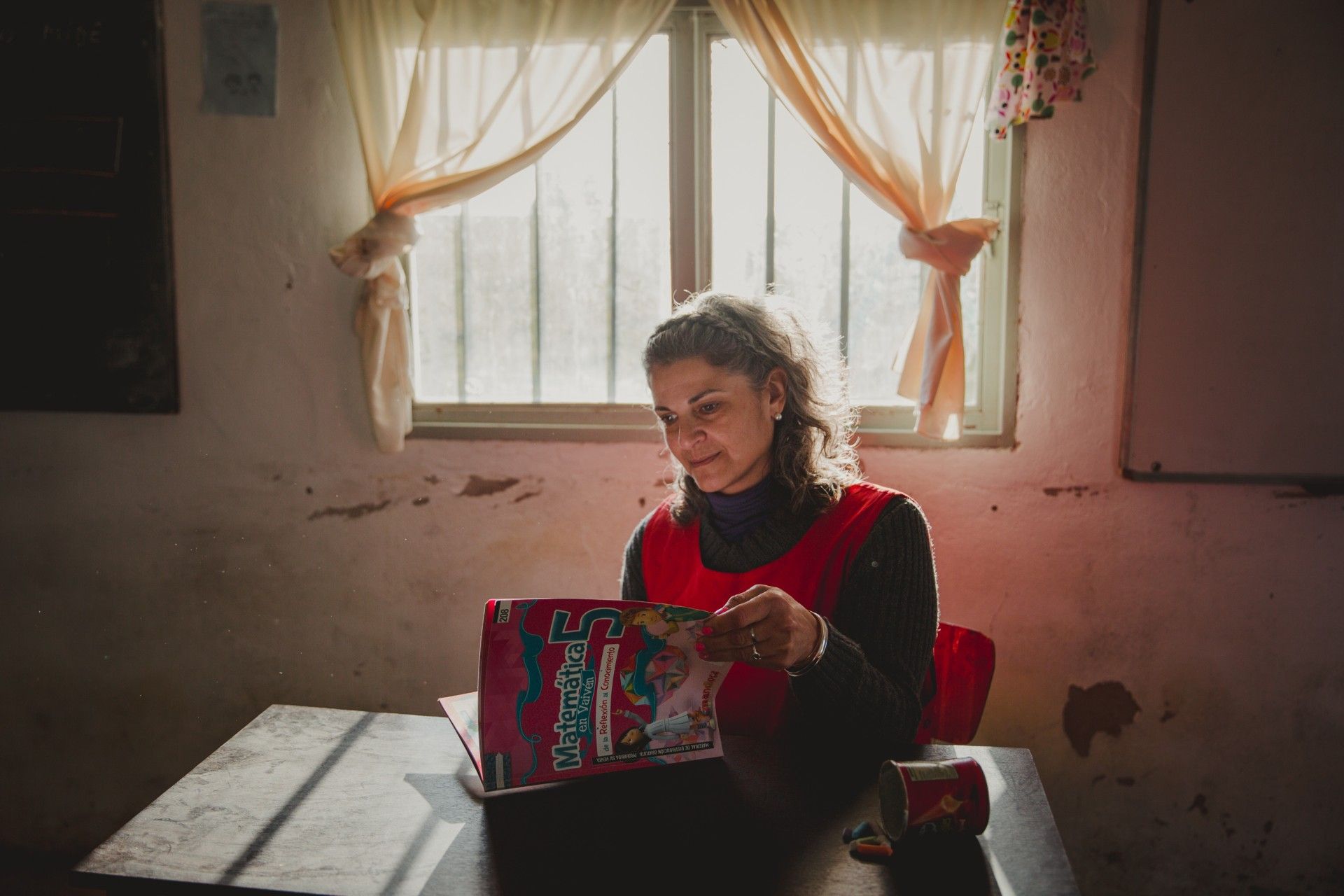
Why are they targeting rural schools?
In rural schools, sovereignity is put into practice, which is something that people in power don’t like. Teachers know that so they fight tooth and nails to preserve their places. “They don’t want us to be organized. They want us to be submissive, isolated from the community. They don’t want us to spread the fact that glyphosate kills.That’s why they attack rural schools. Not because of the land we occupie but because they don’t want us to speak up,” declares Emilce.
Nobody can live in peace while the fumigated airplanes spray their deadly cargo.
A week after the interview with Estela and Emilce, the news about Ana Zabaloy’s death come as a shock in the middle of the environmental struggle. Ana, “an activist of righteouss causes” as defined by her friend teacher Laura Calderón, had denounced for years the serious health problems generated by glyphosate fumigations. She knew them well because she was a victim of glyphosate herself. Ana confronted corporate interests, raised awareness in the community and organized their collagues in the struggle against glyphosate. She died from a cancer that had returned after her exposure to fumigations.
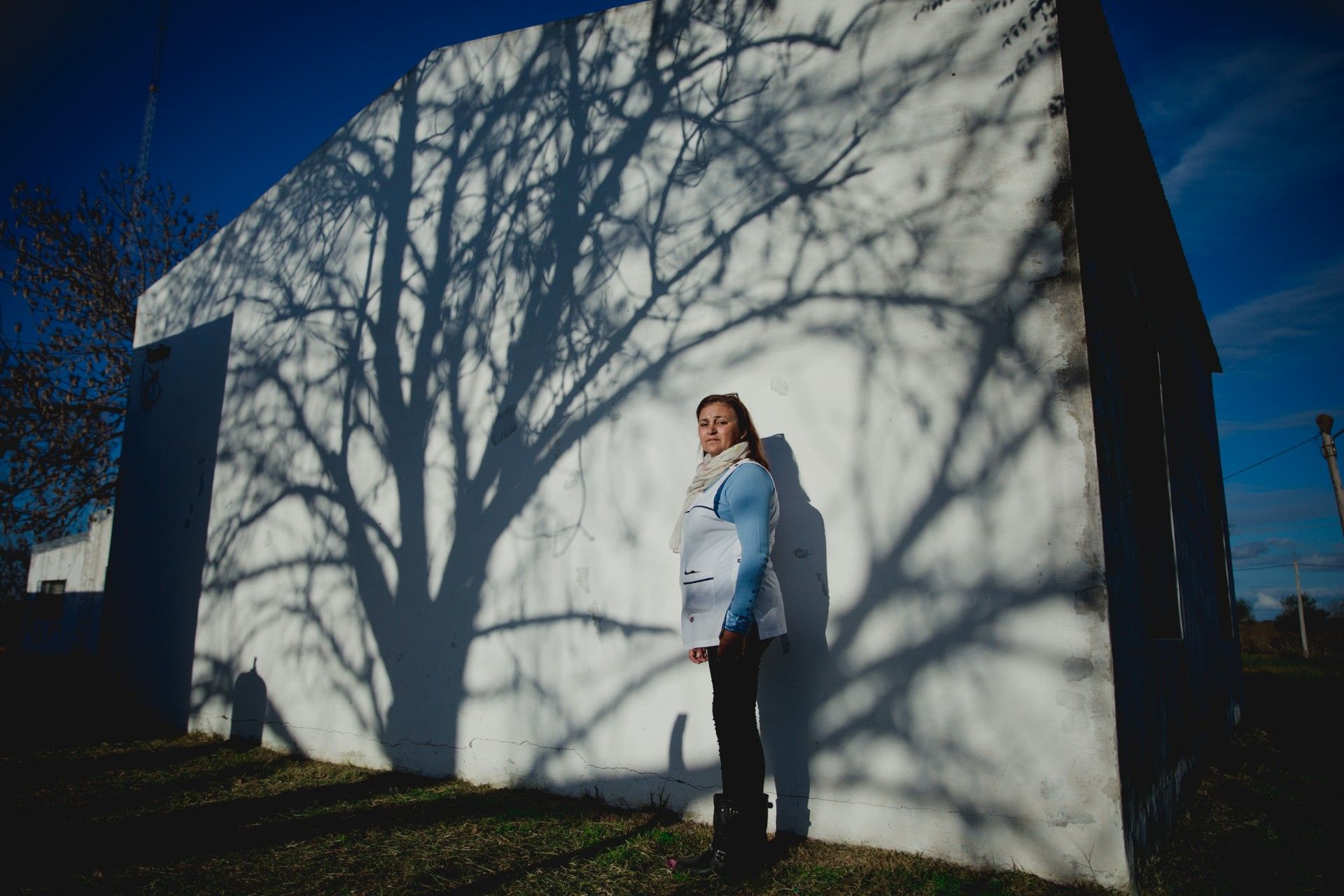
“Stop spraying rural schools and villages. Stop making us sick. Stop killing us,” cried out Ana in a letter that we published a long time ago. Estela, Emilce and many other teachers met her in the fighting against glyphosate and that is how they want to remember her.
A day after Ana’s death, Estela sends me an audio. She needs to talk. “The helplessness and pain that we feel over Ana’s death are terrible. Although the soybean producers don’t give a damn about it, we’re going to continue her struggle. Ana’s name will be everywhere because she put her body and soul to this cause. Her departure will not be in vain.”
People say nothing because they have no choice. They don’t want to loose their jobs and the little they still have got.
This is what we call the agricultural export model of death. A model that prioritizes profit over the health of people, soil, animals and plants. We’ve already lost Ana. How many more lives are we going to deliver to a system that pollutes, sickens and kills?
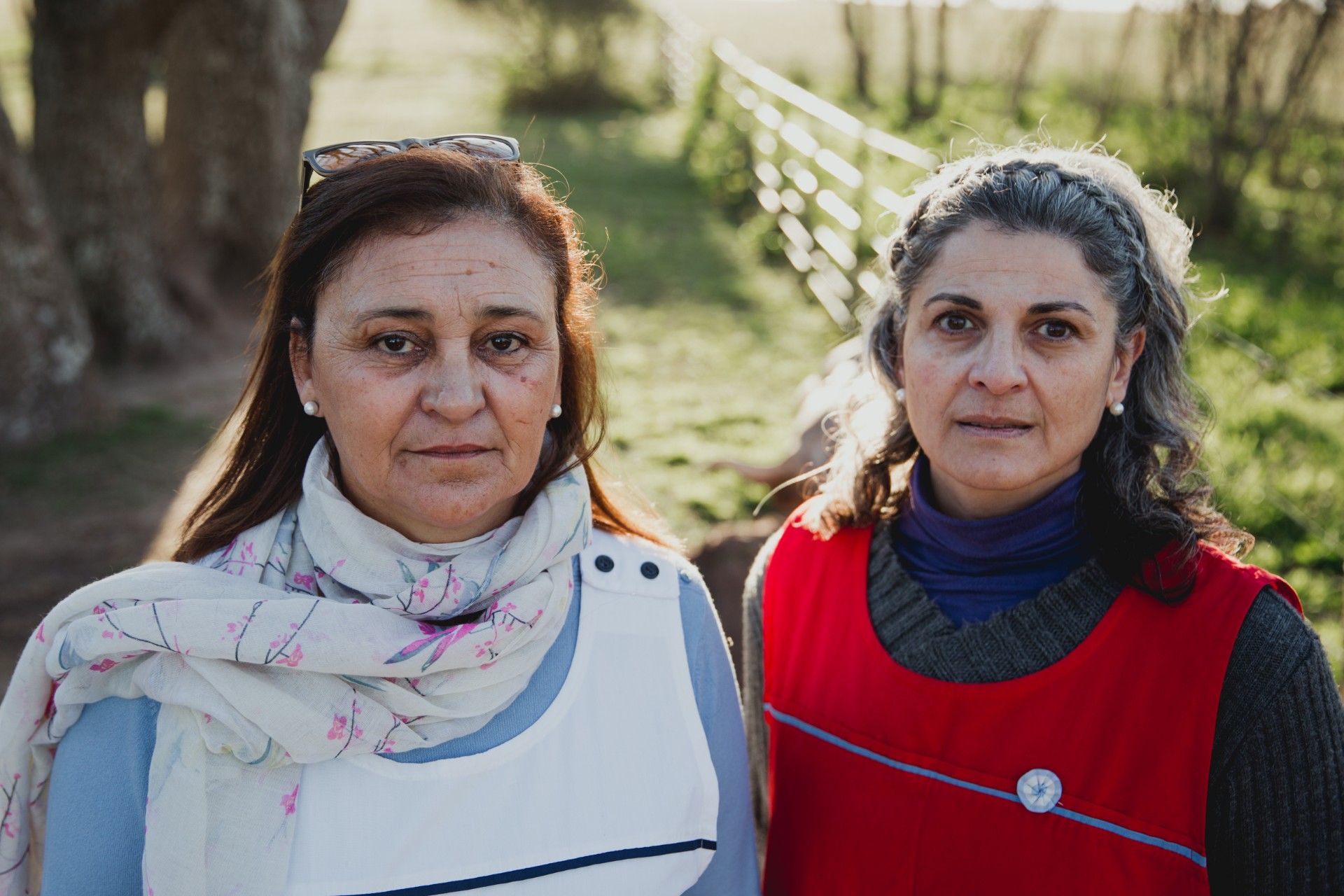
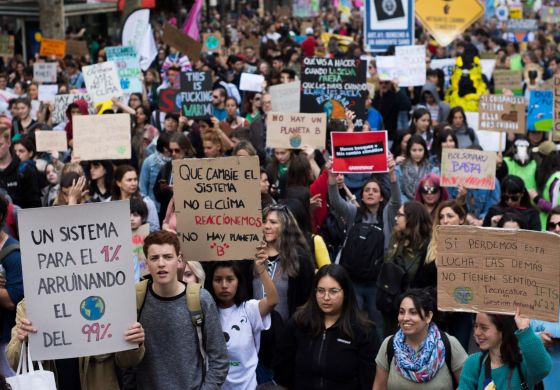
“We live on this planet as if we had another one where to go”

"We are destroying our habitat"
Daniele Incalcaterra premiered the Chaco documentary, in which he gives an account of how businessmen and politicians collude so that he cannot return the lands of his father to the native peoples. A story that exemplifies the continent's great environmental problem.

"In 60 years, there will be not a single hectare of forest left”
The damages caused by soybean farming, the extractive dependence model and open-pit mining are absent from the Argentina political agenda. Carlos Vicente, a member of Action for Biodiversity and also a member of Grain, warns us about the risks of not taking into account future generations.
